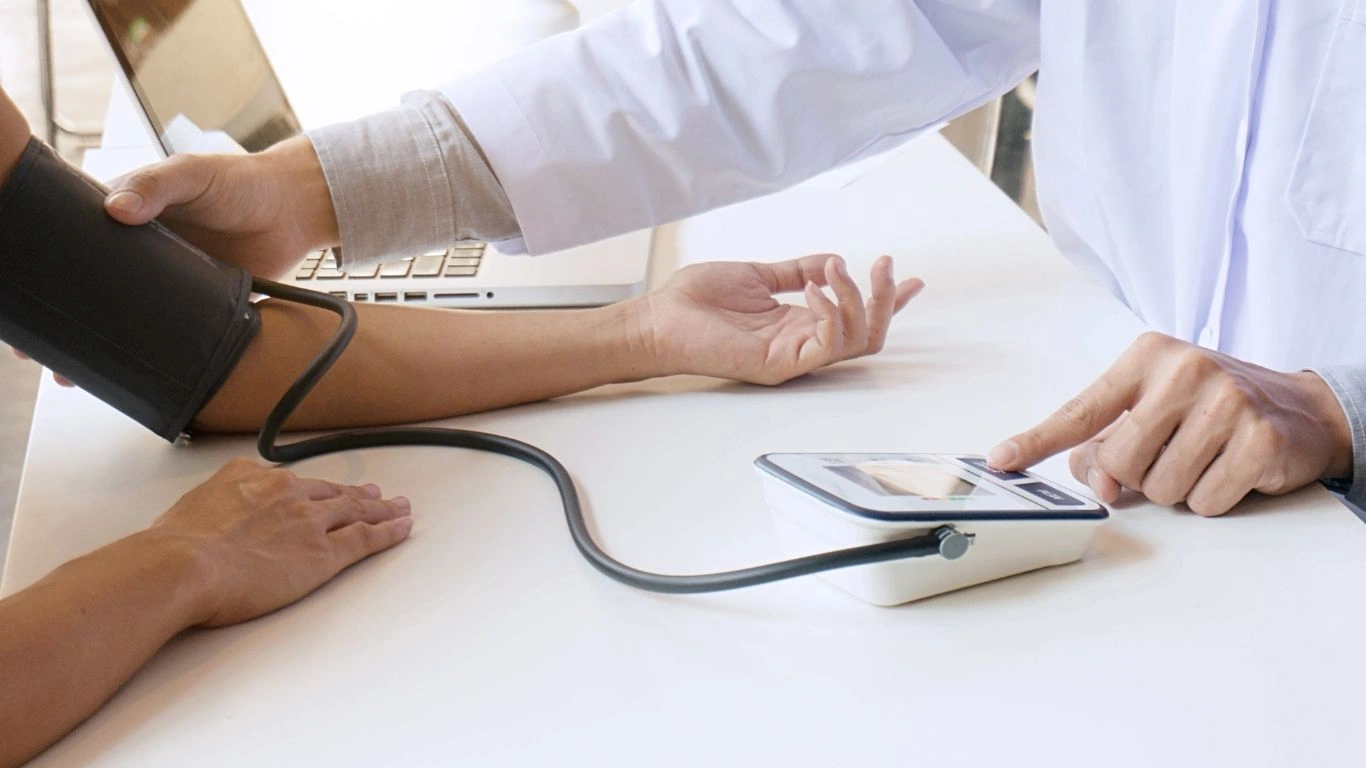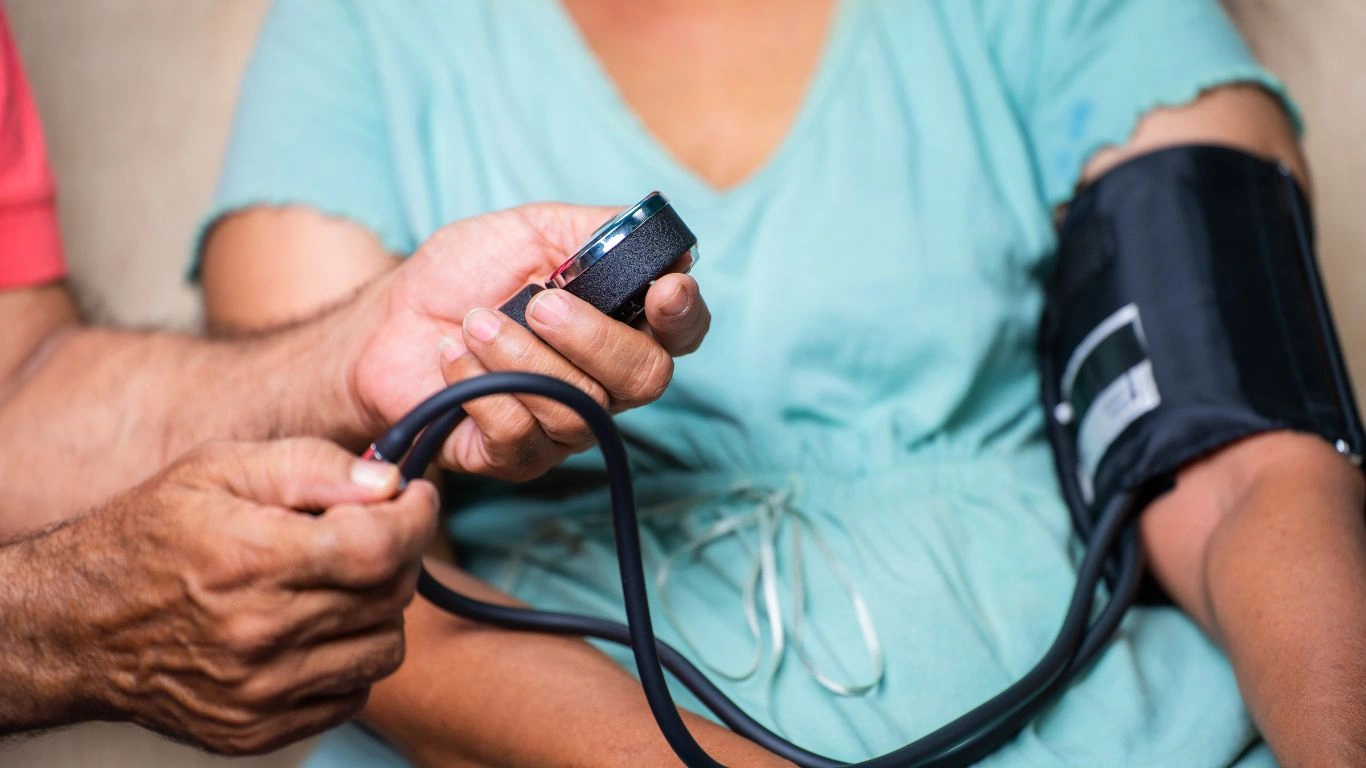How Excess Protein Affects Blood Pressure – Why You Should Care
When we think about high blood pressure, or hypertension, we often blame the usual suspects—too much salt, lack of exercise, stress. But one thing that doesn’t get talked about enough? The impact of excess protein on blood pressure. As someone who has spent years studying and treating hypertension, I’ve seen firsthand how diet plays a huge role in controlling (or worsening) blood pressure. And protein, believe it or not, is often overlooked as a potential culprit. Let’s dive into this overlooked connection.
How Much Protein Is Too Much?

We’ve been conditioned to believe that more protein equals better health. After all, it helps with muscle growth, metabolism, and satiety. But here’s the catch—too much of a good thing can backfire, especially when it comes to blood pressure.
According to dietary guidelines, the recommended protein intake for an average adult is around 46 grams per day for women and 56 grams per day for men. However, high-protein diets—think keto, paleo, or excessive protein shakes—can easily push people into the 100-150 gram range, sometimes even more. This is where problems start.
Why Excess Protein Can Raise Blood Pressure
There are a few key reasons why overloading on protein can put extra strain on your cardiovascular system:
- Increased kidney workload: The kidneys play a crucial role in filtering out excess nitrogen from protein metabolism. Over time, this extra burden can contribute to higher blood pressure.
- Elevated insulin levels: Animal-based proteins, in particular, can stimulate insulin secretion. High insulin levels have been linked to sodium retention, which is a direct trigger for increased blood pressure.
- Higher levels of IGF-1 (Insulin-like Growth Factor 1): Excessive protein consumption can spike IGF-1, which has been associated with vascular stiffness—a key factor in hypertension.
Now, don’t get me wrong—I’m not saying you need to cut protein entirely. But balance is key.
The Protein Source Matters More Than You Think

Not all protein is created equal. From my clinical experience, I’ve noticed that the source of protein is just as important as the amount.
Here’s the deal:
- Animal-based proteins (like red meat, processed meats, and full-fat dairy) tend to have higher saturated fat and sodium content, which can contribute to hypertension.
- Plant-based proteins (like lentils, beans, quinoa, and nuts) are rich in fiber and antioxidants, which can actually help lower blood pressure.
One of my patients, a 52-year-old man struggling with stubborn high blood pressure, was consuming multiple protein shakes a day, thinking it was harmless. After reducing his intake and switching to more plant-based sources, his blood pressure improved significantly within months. It was an eye-opener for him—and a lesson I share often.
Hidden Sources of Excess Protein

One thing that surprises a lot of my patients? They’re eating way more protein than they realize—without even trying. Some foods that sneak in extra protein include:
- Protein bars & powders: Many of these are packed with not just protein, but also added sugars and artificial ingredients.
- Greek yogurt & cottage cheese: While these are healthy choices in moderation, eating them in excess can push protein intake too high.
- Processed “healthy” snacks: Many so-called health foods are loaded with added protein to appeal to fitness-conscious consumers.
Understanding how much protein you’re actually eating can be a game-changer when managing blood pressure. It’s not just about what you add to your diet—it’s also about what you cut back on.
How Excess Protein Affects Blood Pressure Over Time

Now, let’s talk long-term. Eating a high-protein diet every now and then probably won’t send your blood pressure skyrocketing overnight. But what happens when it becomes a daily habit? Well, that’s where things get concerning.
One thing I’ve noticed in my years treating patients with hypertension is that many of them never made the connection between their diet and their rising blood pressure—until it was too late. Here’s what can happen over time when protein intake remains consistently high:
- Gradual kidney strain: Your kidneys work overtime to process excess protein. Over the years, this extra workload can contribute to kidney dysfunction, which in turn can drive up blood pressure.
- Increased arterial stiffness: Some studies suggest that high protein consumption, especially from animal sources, is linked to arterial stiffness—a major factor in developing hypertension.
- Altered gut microbiome: Yes, even your gut bacteria can be affected! A diet high in protein (particularly from meat) can reduce beneficial gut bacteria and increase harmful ones, potentially leading to inflammation and higher blood pressure.
And let me tell you, I’ve seen this firsthand. I had a patient—a 47-year-old woman—who prided herself on her protein-rich diet. She was active, fit, and thought she was doing everything right. But when she started experiencing persistent headaches and fatigue, her blood pressure reading told another story. We adjusted her protein intake, focused on balance, and within a few months, her numbers improved.
Signs You’re Eating Too Much Protein

So how do you know if your protein intake is creeping into the danger zone? Your body actually gives you warning signs—if you know what to look for.
Common Symptoms of Excess Protein
Here are some telltale signs that you might be overdoing it:
- Frequent headaches: Protein metabolism generates waste products that your kidneys must filter. If they’re struggling, it can lead to dehydration and headaches.
- Elevated blood pressure readings: If your blood pressure has been climbing despite no other obvious changes, your diet might be playing a bigger role than you think.
- Digestive issues: Too much protein, especially from animal sources, can throw off digestion and cause bloating, constipation, or even acid reflux.
- Unexplained fatigue: Your body has to work harder to process excess protein, sometimes leaving you feeling drained.
- Bad breath: If your body is breaking down too much protein, it can lead to an ammonia-like smell on your breath.
Of course, not everyone will experience all these symptoms, but if any of these sound familiar, it might be time to take a closer look at your diet.
Finding the Right Protein Balance for Blood Pressure Health

Alright, so we’ve talked about the risks—now let’s talk solutions. Because the goal here isn’t to cut out protein entirely (that would be just as problematic), but rather to strike the right balance.
General Protein Guidelines
Here’s what I usually recommend to my patients who are trying to manage blood pressure while maintaining a healthy protein intake:
- Stick to recommended daily intake: For most adults, that’s around 0.8 grams per kilogram of body weight. For a 150-pound (68 kg) person, that’s roughly 55 grams of protein daily.
- Prioritize plant-based proteins: Incorporate more beans, lentils, tofu, quinoa, and nuts to help balance your intake.
- Limit processed meats: Bacon, sausages, and deli meats are notorious for their sodium content, which can further elevate blood pressure.
- Hydrate well: If you’re eating a lot of protein, make sure you’re drinking enough water to help your kidneys process it efficiently.
Finding this balance can make a world of difference. I’ve had countless patients make small dietary adjustments and see noticeable improvements in their blood pressure within months. The key is making informed choices and listening to your body.
How to Adjust Your Diet Without Sacrificing Protein

So, we know that excess protein can be a sneaky factor in raising blood pressure. But the big question is—how do you adjust your diet without feeling deprived? Trust me, I’ve helped plenty of patients find that sweet spot where they still get enough protein but avoid the negative side effects.
Here are some easy, practical ways to keep your protein intake balanced while keeping your blood pressure in check:
1. Swap High-Protein Processed Foods for Whole Foods
Those protein bars and shakes might seem convenient, but they’re often packed with hidden sodium and artificial ingredients. Instead, opt for whole food sources like:
- Quinoa: A complete plant-based protein that’s also rich in fiber.
- Lentils & Chickpeas: Great sources of protein that also help with digestion and heart health.
- Eggs: A balanced protein source without the excessive processing.
2. Reduce Red Meat & Processed Meats
Look, I’m not saying you need to ditch steak forever. But if red meat is a staple in your diet, try cutting back to once or twice a week and choosing leaner options like chicken, turkey, or fish.
Even better? Try replacing some animal protein with plant-based alternatives. For example:
- Instead of a steak, try a grilled portobello mushroom burger.
- Swap ground beef in tacos for black beans or lentils.
- Use tofu or tempeh in stir-fries instead of chicken.
3. Pay Attention to Portion Sizes
Most people overestimate how much protein they actually need. A standard serving size of meat or fish is about the size of a deck of cards—yet restaurants often serve portions two or three times that size.
Here’s a simple rule of thumb: Fill half your plate with veggies, a quarter with protein, and a quarter with whole grains. This naturally balances protein intake while keeping your meals nutrient-dense.
Other Lifestyle Changes to Help Manage Blood Pressure

While diet plays a huge role in blood pressure, it’s just one piece of the puzzle. From my experience, the patients who see the best results are the ones who make a few key lifestyle adjustments alongside their dietary changes.
1. Stay Hydrated
If you’re consuming a lot of protein, you need extra water to help your kidneys filter out waste. Aim for at least 8-10 cups of water a day, or more if you’re active.
2. Get Moving
Regular exercise helps lower blood pressure naturally by improving circulation and reducing stress hormones. Even just 30 minutes of walking daily can make a difference.
3. Manage Stress
Chronic stress can keep your blood pressure elevated, no matter how healthy your diet is. Try meditation, deep breathing exercises, or even something as simple as listening to music to help keep stress levels in check.
Final Thoughts
At the end of the day, the goal isn’t to cut out protein but to find a healthy balance. Understanding the impact of excess protein on blood pressure is key to making smarter dietary choices. By focusing on whole foods, plant-based sources, and balanced meals, you can support both your heart and overall well-being.
And remember, everyone’s body is different! If you’re unsure about your protein needs, work with a doctor or nutritionist to create a plan tailored to you.
References
Disclaimer
This article is for informational purposes only and should not be taken as medical advice. If you have concerns about your blood pressure or diet, consult a healthcare professional.

Dr. Gwenna Aazee is a board-certified Internal Medicine Physician with a special focus on hypertension management, chronic disease prevention, and patient education. With years of experience in both clinical practice and medical writing, she’s passionate about turning evidence-based medicine into accessible, actionable advice. Through her work at Healthusias.com, Dr. Aazee empowers readers to take charge of their health with confidence and clarity. Off the clock, she enjoys deep dives into nutrition research, long walks with her rescue pup, and simplifying medical jargon one article at a time.







